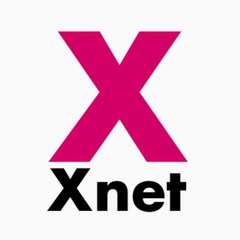Basic how-to guide for preserving fundamental rights on the Internet | Xnet
Xnet publishes a Basic How-to guide for preserveing fundamental rights on the Internet
#Democracy – Rights and freedoms protected by the people: recent events in Catalonia as a case study
How-to guide: https://xnet-x.net/en/how-to-for-preserving-fundamental-rights-internet/
Even more basic PDF version.
What is happening in Spain these days in relation with the situation in Catalonia is a very significant milestone in the defence of freedoms and rights around the world in the digital age.
The reaction of the Spanish government has clearly shown that the entire population – not only those living in Catalonia – needs to have tools to guarantee their fundamental rights (natural rights guaranteed per se which do not depend on any government) independently of any unjustified or arbitrary tutelage [1] [2] [3].
Many international institutions like the United Nations [4], recommend this after the Snowden revelations, emphasizing that knowledge and use of digital tools by everyone to ensure their privacy, freedom of expression and access to information are essential and the only way to guarantee fundamental rights in the face of increasing state-approved mass surveillance.
The acceleration of events in Catalonia has finally made the whole Spanish population aware of this situation and many citizens are now ready to begin use these tools. But, these days, unlike situations such as those experienced in Turkey, for example, even the Catalan institutions are publicising the necessary tools. They have finally agreed to assign, distribute and share responsibility for protection of freedoms [5], thus beginning to endorse what we see as the embryo of what has to be a democracy that is up to the requirements of the digital age.
Xnet fights to empower people because we believe that a real democracy resides in thye fact of making it possible for each and every person to access the necessary tools to monitor their institutions and to be autonomous in their judgments and, consequently, in protecting their rights and freedoms. We have worked tirelessly to teach people how to use these tools and to deactivate the gross attempts to criminalise them by powers that need people to be at their mercy.
From this point of view, what is happening these days is of historic significance and hopeful. This acceleration towards a greater degree of democracy and strength for civil society is taking place spontaneously, but lack of knowledge about some aspects of the digital milieu is exposing people to risks [6] [7].
Accordingly, and in order to facilitate this process of co-responsibility wherever necessary, Xnet has summarized the most important information in a basic How-to guide.
Our How-to guide is also been associated with the indispensable work in defence of rights and legal freedoms carried out by several organisations in the campaign #SomDefensores.
Notes:
[1] Legal analysis by the Electronic Founder Foundation on the illegality of the attack by the Spanish Government on the top-level domain PuntCat and the Internet:
"The content removed is essentially political speech, which the European Court of Human Rights has considered deserving of a higher level of protection than other forms of expression. Even though the speech concerns a referendum that has been ruled illegal, the speech does not in itself pose any imminent threat to life or limb.
The […] seizure took place with only 10 days remaining until the scheduled referendum, making it unlikely that the legality of the domains' seizures could be judicially reviewed before the referendum is scheduled to take place. The fact that such mechanisms of legal review would not be timely accessible to the Catalan independence movement, and that the censorship of speech would therefore be de facto unreviewable[…].
Whether it's allegations of sedition or any other form of unlawful or controversial speech, domain name intermediaries should not be held responsible for the content of websites that utilize their domains.
https://www.eff.org/es/deeplinks/2017/09/cat-domain-casualty-catalonian-independence-crackdown
[2] Internet Society statement on Internet blocking measures in Catalonia, Spain
"The court's ruling vis-à-vis .CAT has a disproportionate chilling effect on free expression, and an unjust impact on the ability of Catalan-speaking persons to create, share, and access content on the Internet."
https://www.internetsociety.org/news/statements/2017/internet-society-statement-internet-blocking-measures-catalonia-spain/
The Spanish government has been blocking websites containing information on the Catalan referendum to be held on 1 October.
https://twitter.com/OpenObservatory/status/912306031329529856
[3] Right to Privacy and Encryption : "European Parliament Science and Technology Options Assessment (STOA) on Mass Surveillance" and the "United Nations report on the promotion and protection of the right to freedom of opinion and expression"
https://xnet-x.net/en/right-to-privacy-and-encryption/
[4] The Catalan government is using cypherpunk techniques with voters data
https://medium.com/@josepot/is-sensitive-voter-data-being-exposed-by-the-catalan-government-af9d8a909482
[5] On September 25, 13 young people testify before the National Police in relation to the "mirrors" of the referendum website
https://twitter.com/mvilaredon/status/912231920540487680
[6] List of irregularities during the search and arrest of a young man of 21 years for "cloning the web http://referendum.cat"
https://twitter.com/mvilaredon/status/911285093142016001
Posted: 21 september, 2017
Source:
https://xnet-x.net/en/how-to-guide-for-preserving-fundamental-rights-internet/

